Water Ancestors
I.
Lately, I think a lot about my ancestors.
Ancestor mothers, ancestor fathers,
ancestor children. Perhaps it is because
they have come back to see me, one or
many at a time, carrying on their shoulders
the crisp blue waters of Abbay.
This, I feel inside me, as if
my blood is in fact blue-green.
I know it is.
I, at my best, am traveled water;
I have no resting place.
The lands I go to are all
different, and in them, I too
become someone else, sometimes
unrecognizable, but, at times,
despairingly assimilated.
And, as an immigrant, I find myself
thinking about shifting and moving;
and the breaking that occurs,
is both visible and invisible.
With this, something breaks
open too: the shifting of the self
into another one, the moving of the self
into many, the self as no one, the self
as new, impassible.
I, like many, I suspect, tell myself this:
there is nothing breaking here, nothing bleeding,
nothing festering to see.
How ordinary of me, to reassure myself
in such a complacent way.
Instead, I should be saying:
here, in this body, someone died,
perhaps not entirely, but bits and
pieces left here and there.
The further from my home,
the more the breaking.
When I am asked, where is home,
I say, which one?
The one that gave birth to me
and kicked me out, multiple times?
The one that calls me by a name
I do not recognize? The one that
claimed my tongue before I knew
its marred history? Or the one
that follows me everywhere I go,
small demon on my back,
a reminder incised deeply
into my bones.
These, and more,
home, and yet not.
II.
I carry them with me
wherever I go.
This ancestor who was promised in marriage
when she was three years old; this one
who ached to learn how to read and write,
but never did; this who found herself
among white men, and birthed children
with brown skin and blue eyes;
this who marries a woman that refuses
to give him children; this one, who is a
warrior king, last breath filled
with the smoke of a flying bullet;
this elegance who saw Finfinne
before it was so; and far beyond,
even further, this one, who traveled
many seas to collect the word of God.
These, and more,
I carry on my back,
and my body flattens itself.
So much history,
so little to unravel it with.
The dreams of my father
consume me.
My mother’s too are well-preserved,
small pockets
folded within my skin.
III.
I dream of home
and never live to see it.
The lands I inhabit
are filled with bones;
mine, my ancestor’s
and my son’s.
When I find myself in water,
the dread that devours me is not mine,
but perhaps yours, oh ancestor brother,
and the feeling of having crossed
many seas before is not new, either.
I come to Los Angeles
and find the devil
waiting on my doorstep;
and beneath the horizon
all is old and foreign to me.
My tongue betrays me many,
many times. It calls my name by another,
it changes its curls and whorls
to be released from its original accents.
These languages, too, all coalesce
into chaos: blue, or black, or bleeding
burgundy, they are shadows, following me
everywhere I go.
I walk down the street, and hear myself saying,
hello, how are you, have a good day.
Where, does one go,
to have a good day?
IV.
The cities too, are grasslands
of bones and dust. Here I find
bits of others – a bit of Asmara,
a bit of Rome, a bit of Addis Ababa,
a bit of San Francisco; pieces for me
to mend. And when strangers ask,
where are you from, I say, hesitantly,
nowhere, nowhere.
V.
The stories I hold
are made of stones.
Some I throw under
the ocean’s feet, hoping they will wash
away to a new land. Some I carry
in my pockets to keep me from
becoming invisible. Some, I’m afraid,
have replaced my eye sockets, and sit there,
waiting, waiting.
This waiting slowly eats away
parts of me I did not know existed.
This skin sheds
like that of a snake’s.
How many colors
are within me?
Black, brown,
blue, blood.
The wounds
of purple.
I muster the art of invisibility,
the requiem of solitude. In this,
I find comfort, because it won’t ask me
to point towards home.
Home is where the bones
are buried, where the bodies laid bloated,
where the heads hung upside down,
where the smell of flesh is not new.
Home is also cruel;
why do we
forget that.
VI.
I am thinking
about water too.
Not the blue,
but black-green.
I must have been born
underneath the Blue Nile,
or have existed beneath
the bed of Lake Tana.
I feel it running in my veins,
as if it was light.
How many shadows
have to exist within me
before I know which light to follow –
VII.
In its best days, the Blue Nile
spits white, foaming sunlight
under its teeth.
Here we come to recount our sorrows,
our hopes, our dreams.
This water is wise, having traveled
many lands, having carried with itself
the voices of lost men and women,
having fed many.
It bleeds heavily;
perhaps it sees us,
our misgivings,
our small joys.
VIII.
I find definition
to be pleasing,
contained.
Water.
A colorless, transparent,
odorless, tasteless liquid
that forms the seas, lakes,
rivers, and rain,
and is the basis of the fluids
of living organisms.
In this, I can be contained.
§
War
I have been described by it, often
seen it rise up to the mouths of strangers,
as if to say, all things foreign – note: referring
to me, or, my body, as a thing; an object – are
made of war, or: things infested by war.
This thing, I also notice, comes within
language: that which we use to define
our own, or not; the knowing we choose
to acknowledge, that which we ignore.
This thing, is also a fruit: thorns on the outside,
bleeding meat on the inside, quenching
a thirst, a cry, nostalgia for simpler days.
War, I find, is also this: constant hiding,
home within invisibility, or worry, or
brokenness. Not knowing what to do
or say to the grief-stricken. Having to explain,
amidst tears, or bewilderment, the difference
between the immigrant, and the refugee. I am
inclined to think: wretched, once there, now
here – lost. The constant loss, coating our skin
like thin ash. Having to beg – see me, see this
humanness in me. The knowing about our new selves:
as an alien – again, a thing, an object. Having to count
our fears too; that of assimilation, that of
unbelonging, that of a new death, that of an imminent threat.
Knowing the gendered histories of our bodies,
and shaping a way to forgetfulness – to survive
this thing – note here: not an object, but a
constant self of being.
***
Buy Nomenclatures of Invisibility here: Amazon | BOA Editions
Excerpt from NOMENCLATURES OF INVISIBILITY published by BOA Editions, Ltd. Copyright © 2023 by Mahtem Shiferraw.


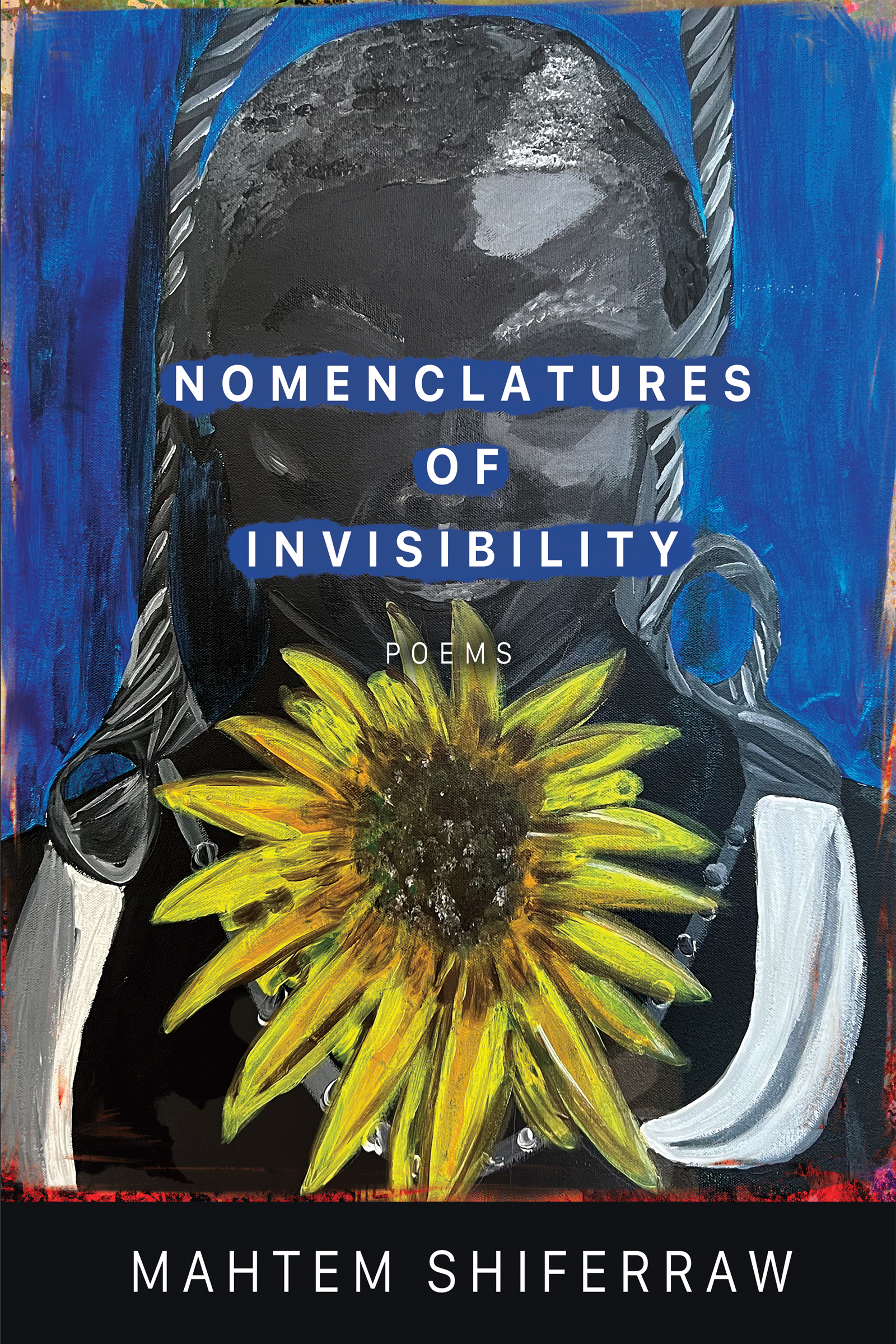
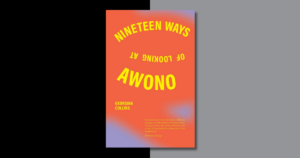
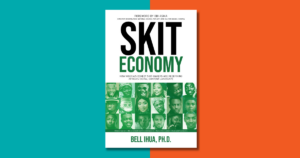
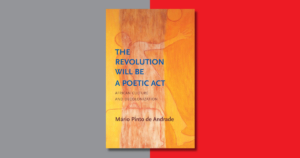
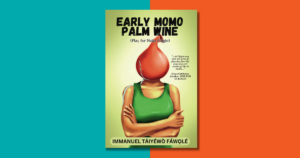
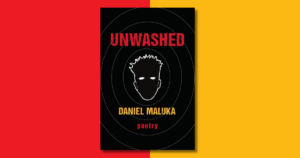
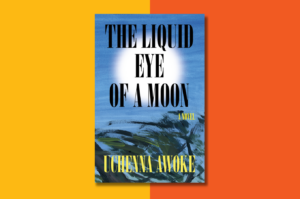

COMMENTS -
Reader Interactions